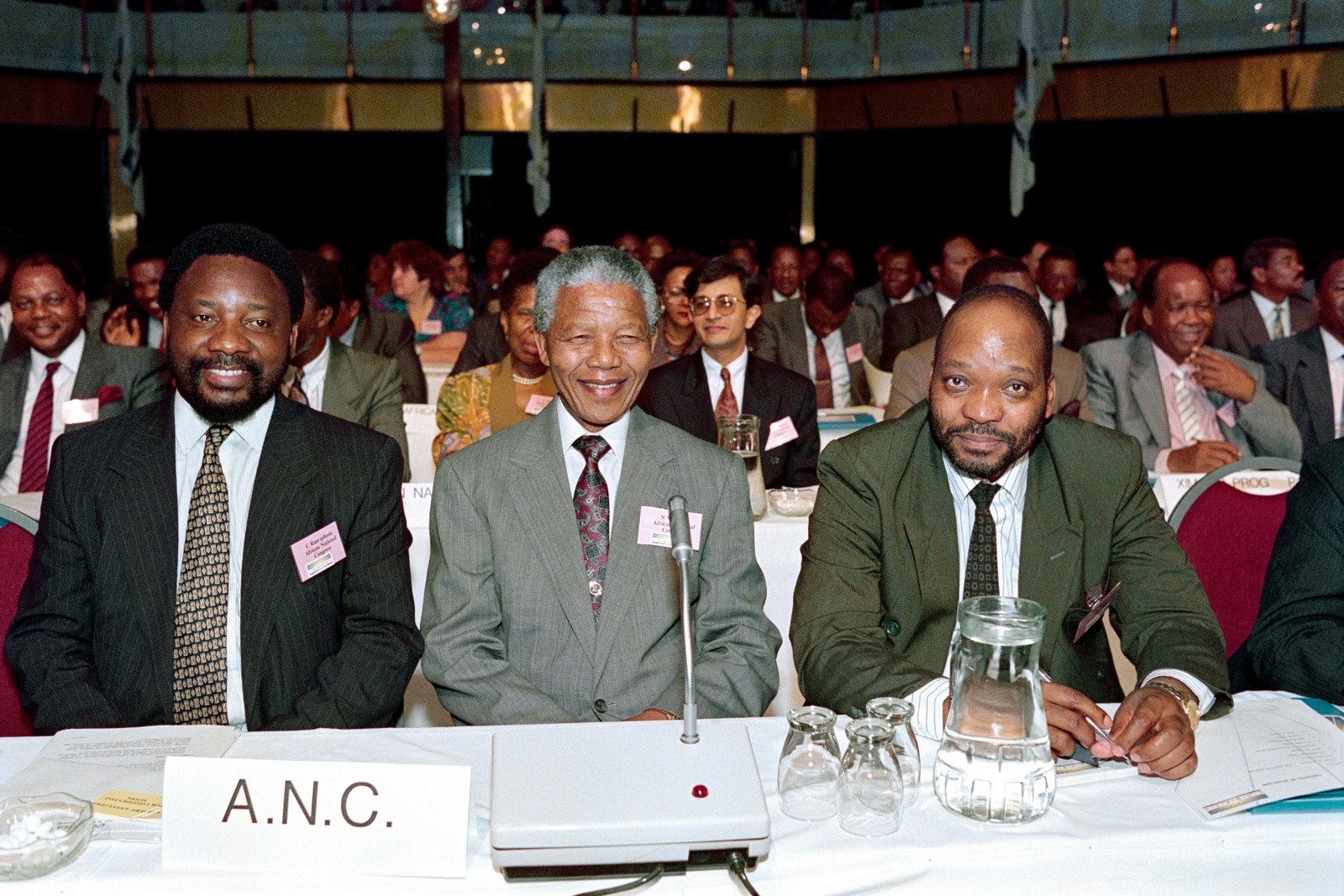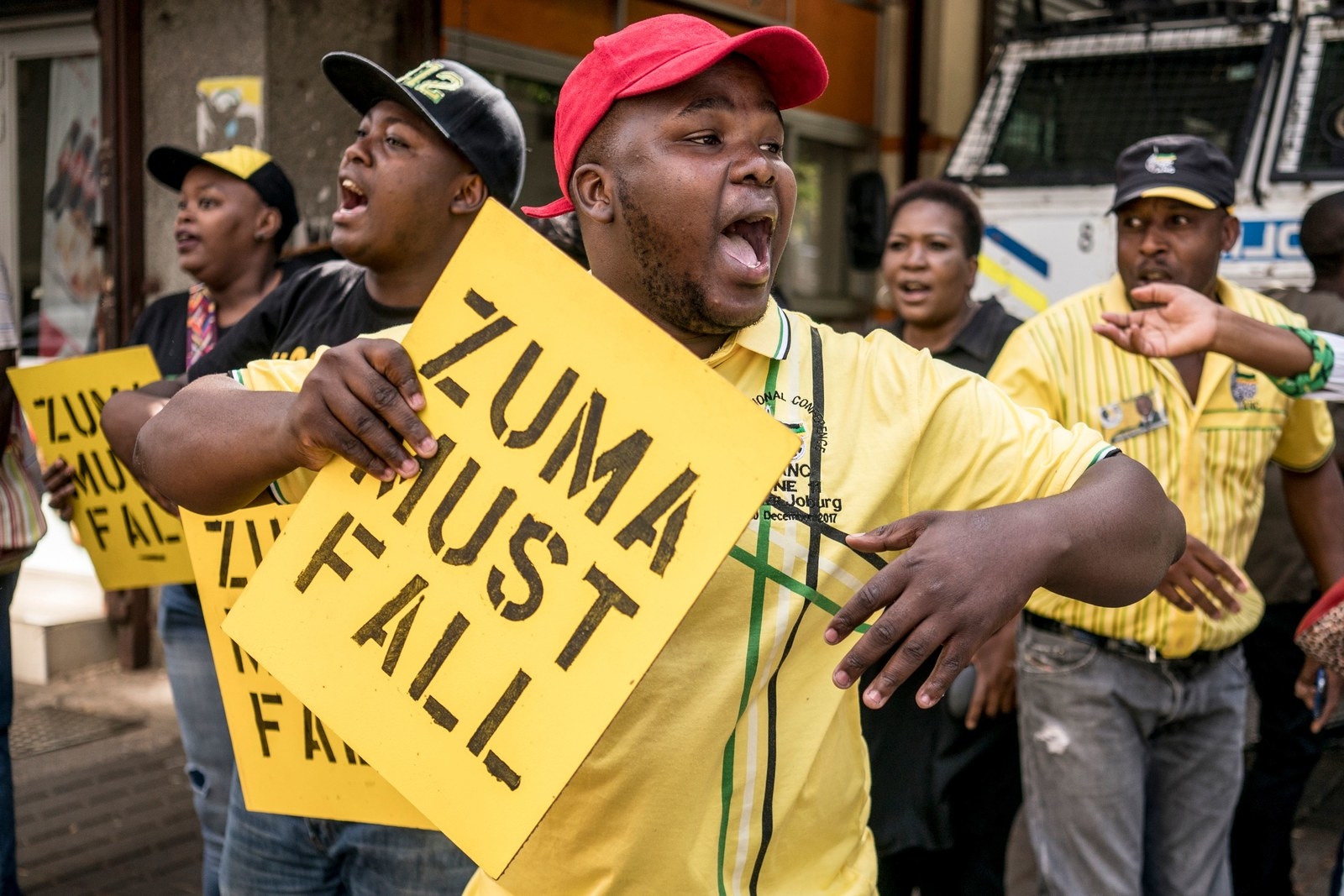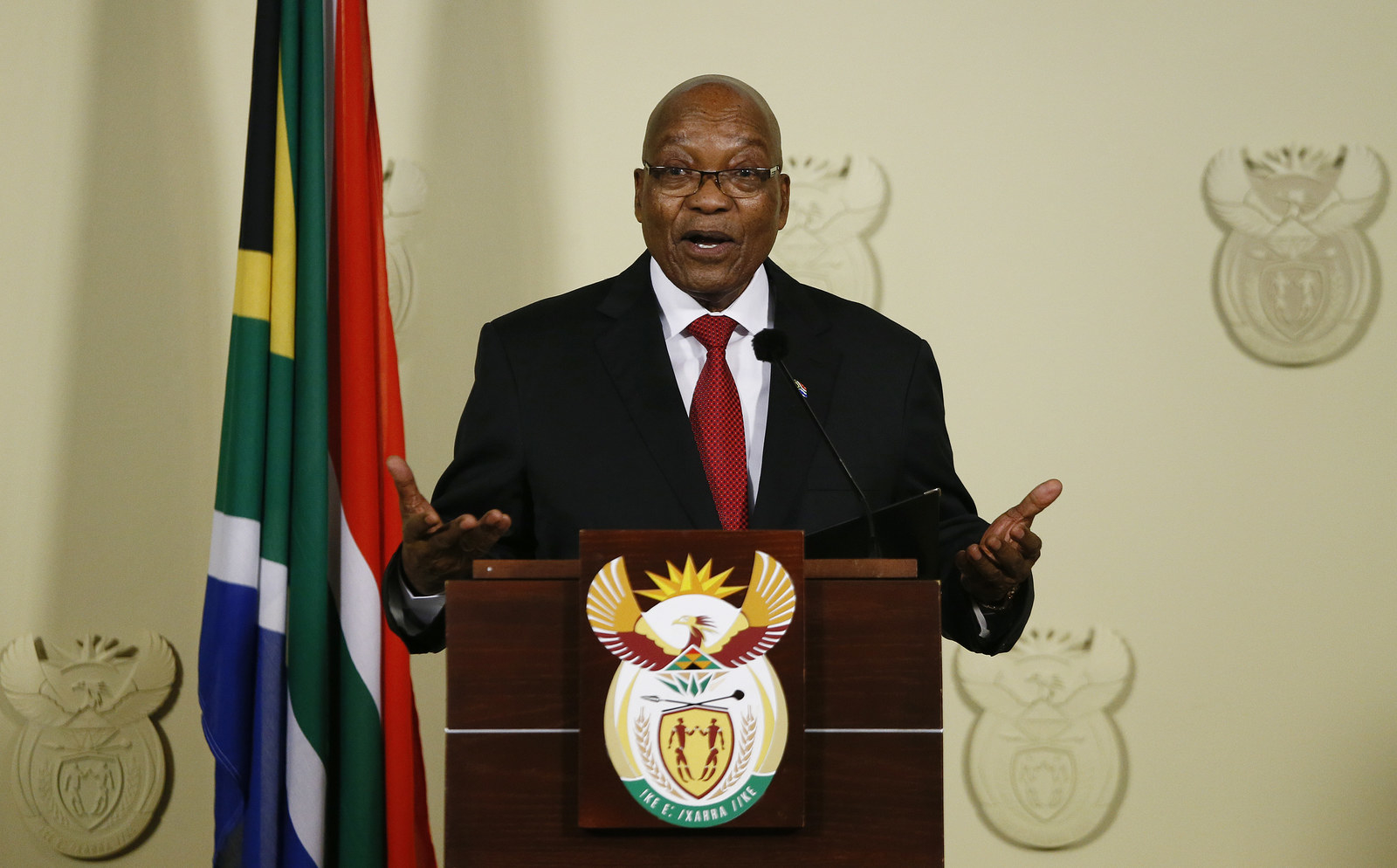
Cyril Ramaphosa has been declared the new president of South Africa, a day after Jacob Zuma resigned.
He became president after he was the only individual to be nominated in the South African parliament, where his African National Congress (ANC) party has a large majority.
Addressing MPs, the 65-year-old said being named president was a "truly humbling occasion."
"To bring about change is what has put many of us here in this House, and our intent is to continue, indeed to improve the lives of our people," Ramaphosa said. "Thank you all for this great opportunity that I've been given, and I will try to work very hard not to disappoint the people of South Africa."
People on Twitter expressed their excitement about Ramaphosa's presidency and their hope that he would enact real change in South Africa.
I am 100% behind comrade president Ramaphosa! #PresidentRamaphosa
What the EFF does not get is that South Africans want jobs, want south africa to become a global powerhouse, they w… https://t.co/WubG0rlSMb
It’s so nice when it’s the start of the relationship. He is so smooth, quotes culture, tickles you with his humour.… https://t.co/njeJwCv64P
My President!!!!! MC Ramaphosa. Congratulations Sir. I'm pretty sure Madiba is smiling down and if he could, would… https://t.co/wMyp00hk5q
Congratulations to the fifth President of the Republic of South Africa, Honourable Cyril Ramaphosa. May you serve t… https://t.co/dY8m0Z3mOb
Ramaphosa, a trade union leader turned wealthy businessman who had been Zuma's deputy since 2016, was in December elected to replace Zuma as the president of the ANC, which has been the ruling party of South Africa since 1994.
In the transition to majority rule in the early 1990s, Ramaphosa was Nelson Mandela's chief negotiator.

Zuma announced his resignation in a televised speech Wednesday, finally succumbing to pressure from within his own party to step down following years of corruption allegations, which the former president denied.
The ANC had acted to recall Zuma from office after nine years in power, but he initially refused to quit. However, facing the seventh no-confidence vote of his presidential career on Friday, he resigned.

"No life should be lost in my name and also the ANC should never be divided in my name. I have therefore come to the decision to resign as president of the republic with immediate effect," he said on Wednesday night.
"Even though I disagree with the decision of the leadership of my organization, I have always been a disciplined member of the ANC.
"As I leave I will continue to serve the people of South Africa as well as the ANC, the organization I have served all of my life. I will dedicate all my energy to work towards the attainment of the policies of our organization.”

Despite trying to force Zuma from office, the ANC said in a statement it “nonetheless wants to salute the outstanding contribution he has made and express its profound gratitude to him for the role he has played in the ANC spanning over 60 years of loyal service.”
Ahead of elections in 2019, Ramaphosa faces the huge challenge of restoring electoral faith in the ANC and revitalising South Africa's economy.
The country has an extremely high unemployment rate, particularly among young people, while its second most populous city, Cape Town, is running out of water. And despite years of awareness and outreach campaigns, 7.1 million people are living with HIV in South Africa, around 13% of the population.
